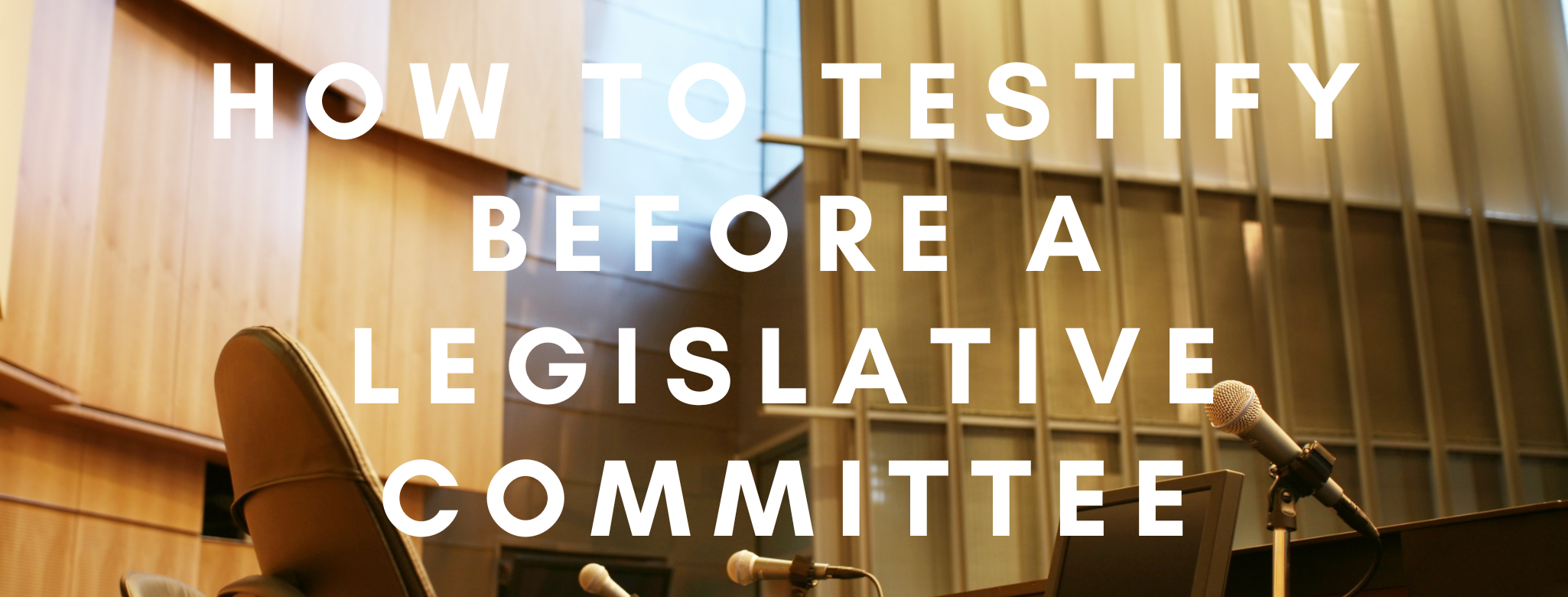
How to Testify Before a Legislative Committee
You have the right...
You have the right, as do all citizens, to testify before the North Dakota Legislative Assembly on any bill or resolution.
North Dakota has one of the most open legislatures in the nation. Every bill must have a public hearing before a legislative committee, must be publicly voted upon by the committee, and then must come before the full House or Senate for still another public vote.
Your opportunity to testify on a bill comes at the committee hearing.
Legislative committees meet in rooms on the ground floor or in the legislative wing of the State Capitol. You can come into a committee meeting at any time, even if the door is closed or a hearing is in progress.
Lists of the legislative committees, committee members, and the days and places committees meet are available on this website and at the legislative information kiosk in the hall between the Senate and House chambers. Committee hearing schedules are available on this website and can be viewed on the monitors by the information kiosk and in the hall of the ground floor at the Capitol.
Most current versions of bills and amendments are available on this website. You can also get copies of bills from the Bill and Journal Room. However, if the bill has been amended, the printed bill may not include the amendments.
Hearings Before North Dakota Legislative Committees Are Generally Informal and Few Rules Need Be Observed!
Before the Hearing You Should...
Find out when and where your bill will be heard. Be on time for the hearing. Usually, once a hearing is closed on a particular bill, no further testimony is heard.
Plan your testimony. It is not necessary, but it is helpful, to have written copies of your comments available.
See if other persons will be testifying on your bill. If so, try to coordinate your testimony before the hearing to avoid duplication.
Contact the Secretary of State's office if you are going to testify on behalf of anyone but yourself to see if you must register as a lobbyist.
At the Hearing You Should...
Be present at the start of the hearing. All persons present usually get a chance to speak, but sometimes because of large turnouts it is not possible to give everyone a chance to speak. If you do not get a chance to testify, your presence may be acknowledged and you might be asked if you favor or oppose the bill. Also, you can always submit written testimony.
Sign the witness sheet at the lectern. Give the bill number, whether you favor or oppose the bill, your name, your lobbyist registration number if you have one, and who you represent if other than yourself.
Wait your turn. The chairman announces the beginning of the hearing on a particular bill. The clerk will read the bill. The first speaker is usually the bill's sponsor. The chairman then asks for testimony first from proponents and then opponents.
Plan on following the custom (although it is not absolutely necessary) of beginning your remarks by addressing the chairman and committee members, giving your name and address, and why you are there. For example: "Mr. or Madam Chairman and members of the committee, my name is John Q. Public from Edwinton. I'm in favor of this bill because, etc."
Be brief. Do not repeat what others have said. The hearings are informal so be conversational. Avoid being too technical. Avoid using acronyms or technical references unless you first explain what they mean.
Do not be nervous or worried about doing something wrong. There are no "rights and wrongs" about testifying. Legislators are just your friends and neighbors who want to hear what you have to say.
Expect some questions and comments from committee members. These questions are not designed to embarrass you but merely to provide additional information.
Avoid any clapping, cheering, booing, or other demonstrations.
After the Hearing...
Some committees vote right after a hearing. Others wait until the end of the meeting. Some postpone voting until another meeting.
All committee action is public so you can stay to listen to committee debate and its vote even though the public comment portion of the hearing is over.
One or two days later you can check with the committee clerk, your legislator, or the legislative information kiosk to find out how the committee voted on your bill.
You have a right to testify on any bill before a legislative committee. Legislators want to hear what you have to say.
